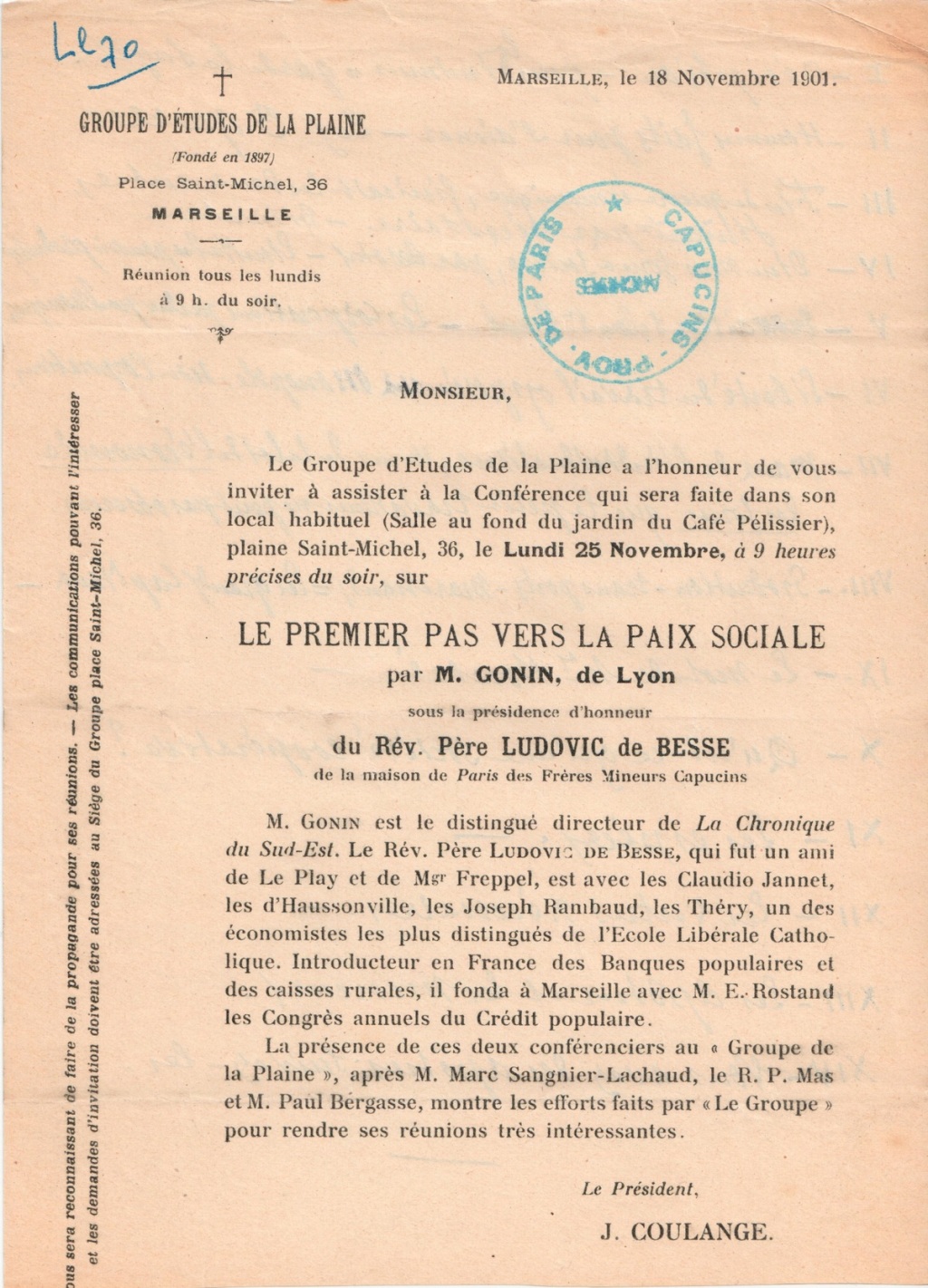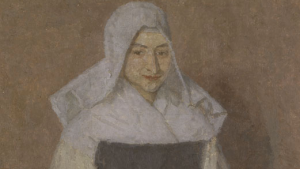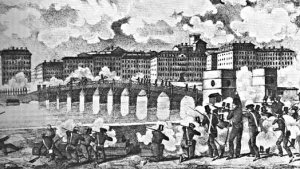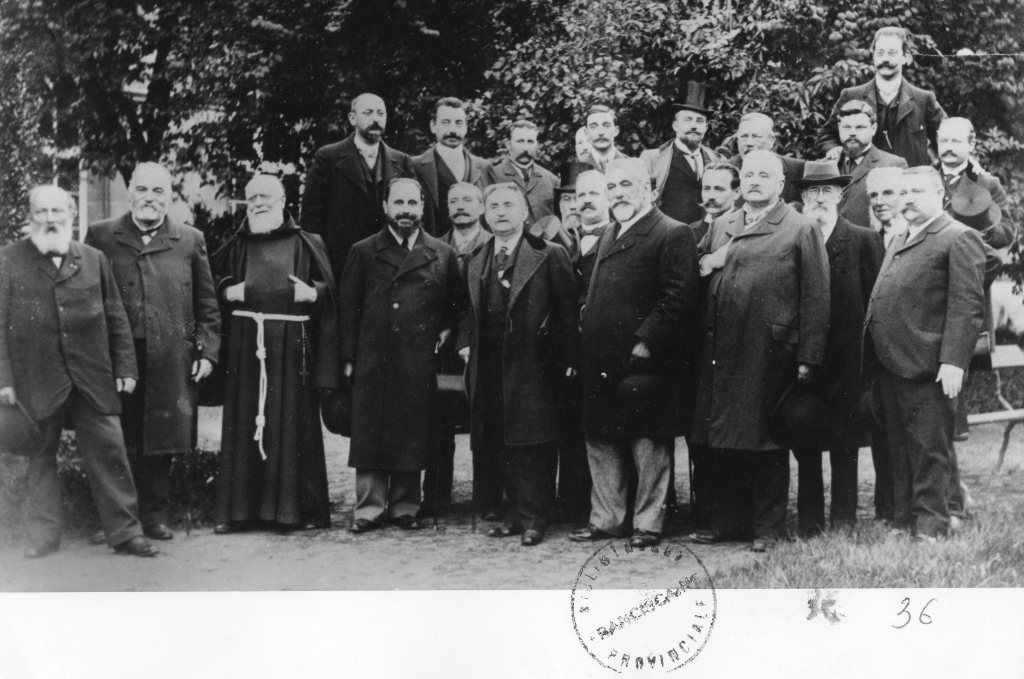This Capuchin friar born in 1831, sensitive to the difficulties of small French craftsmen and merchants, wanted to revolutionize the world of finance and credit. He sought throughout his life to reconcile his religious vocation and his deep humanist convictions.
Can money be used for fraternity and social peace? Can we replace the capitalist system with a solidarity economy, favorable to the poorest sections of society? In the wake of 19th century social Catholicism, a young idealistic Christian wants to transform the world of credit. Her name ? Alphonse-Elisee Chaix. Originally from the small village of Besse in the Var, where he was born in 1831, this son of weavers witnessed with astonishment the industrial and financial upheavals that Napoleonic France was going through. Elisée Chaix became particularly sensitive to the situation of small local craftsmen and merchants, to whom the large fledgling banks refused to lend. Just 20 years old, he wrote to his brother Célestin in a missive:
[…] I believe I know a more effective remedy for the ills of our time. […] it is necessary to rehabilitate poverty in the midst of men in love with wealth.
From Saint Francis of Assisi to the first popular bank
Entering the novitiate of the Capuchins of Marseilles in 1851, Elisée Chaix took the name of Ludovic de Besse and undertook brilliant studies in philosophy and theology. He draws the foundations of his humanist thought from the spirituality of Saint Francis of Assisi, the apostle par excellence of poverty. He also endorses the reflections of outstanding figures of social Catholicism, such as Frédéric Ozanam, Antoine Chevrier or Pauline Jaricot. It will however be necessary to wait twenty-five years for the young priest to implement his revolutionary intuition: to create the very first popular bank.
The initiative was born in Angers in 1878, with the launch of the Christian Workers Bank, supported by the network of social Catholics of France. This associative bank was inspired by the humanist and mutualist movements which then developed elsewhere in Europe, in particular in Germany.Based on cooperation, the establishment associates small “borrowers” in need with “founders”, who support the bank with their capital by collecting interest, the amount of which is limited.
Capuchin Friars Minor
“The objective of this bank was to allow people who did not have the means to start an activity, using the money lent to them by the most fortunate”, says Brother Dominique Lebon, Capuchin and author of Ludovic de Besse. , a Capuchin craftsman of popular credit. “There were a lot of needs at that level: people may have had a job, but they were unable to buy premises or the tools needed to practice their profession. The model, however, declined after a few years. There first Christian Workers Bankruined by long-term loans, finally disappeared in 1887.
Bring workers back to God
On the strength of this first experience, Father Ludovic de Besse continued his work of fraternity and social peace despite the criticisms. If the Capuchin is convinced that the popular banks are a means of bringing workers back to God, he is also challenged by the non-denominational popular banks, created in Italy at the same time. “I wanted these institutions to remain purely economic, without taking on a denominational character, and I asked that the door be open to all the good people who have preserved from religion only respect for the commandments of God”, he wrote to the bishops of France, in his Confidential memory. In 1882, he launched Crédit Mutuel et Populaire, which even published an information and advice newspaper, Economic Union. The movement is launched: new popular credit establishments are born in France, in Montceau-les-Mines, in Toulouse then in the East.

Capuchin Friars Minor
reform capitalism
A liberal Catholic, Father Ludovic de Besse managed to federate a network of seventeen popular banks and secure financial support from the state. His approach, however, shocked some Catholic circles, who reproached him for the non-confessional nature of his works. She brings the Capuchin into a violent conflict with Louis Durant, a lawyer from Lyon and member of the Franciscan Third Order, promoter of the rural Crédit Mutuel banks. Pope Leo XIII himself, asked by Ludovic de Besse in 1896 to settle the controversy between the two men, refuses to take sides. Ludovic de Besse retired from social action in 1902. He died in 1910 after a long illness, leaving behind several profound spiritual works, including The science of prayer.


Ludovic de Besse, the little-known monk behind the popular banks

